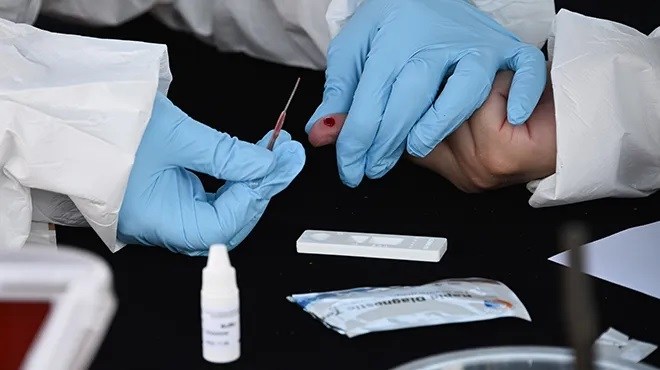The government agency for medicines and health products (FAMHP) has issued a rebuttal of reports this week that one million Covid-19 test kits were bought by the agency and later found to be “unreliable”.
The reports were based on a survey carried out by a laboratory in Denmark of the serological tests, which are used to detect the presence of antibodies in the blood, and are usually used only on medical personnel.
The survey looked at 15 test kits from different makers, including the one purchased by Belgium and manufactured in Italy by DiaSorin. The tests looked for two things: sensitivity, or the ability of the test to detect antibodies in any given sample; and specificity, or the number of positive results found in a group of samples.
On the point of sensitivity, the DiaSorin test scored 84.6%, which the study described as “disappointing”. On the point of specificity, the DiaSorin test scored 97.2% – less than the 99% required in the survey, and the only one of the 15 test kits to fail.
But the agency has now issued a statement calling into question of that survey as well as two others which gave a less than glowing report on the DiaSorin test.
• From a study by the Delta academic hospital in Brussels, which found two false positives, the agency explained that those measurements were not calibrated properly, and would have to be done again. That was not done. By excluding the two faulty results, the agency says, the success was 100%.
• Regarding the Danish study, the FAMHP points out is has not been peer reviewed nor the results scientifically validated. The agency recognises the specificity value of 97.2% as reported, but argues that the 99% demanded by the Danish researchers “is stricter than what is taken as consensus in other countries such as Belgium”.
• Finally, a report by the Dutch RIVM (State Institute for Public Health and the Environment) looked at 21 antibody tests, only four of which reached a value of 99%.
“In addition, it should be noted that serological tests of lower specificity may be used in follow-up studies,” the statement reads. “Local experts should consider this possibility in specific situations.”
The statement goes on, “None of the above studies justify considering the DiaSorin test to be unreliable. Moreover, it is intellectually incorrect not to mention Belgian scientific studies which confirm the reliability of the DiaSorin test.”
These include validation studies by Liege university hospital and by the Iris Sud hospitals in Brussels (HIS-IZZ) in which DiaSorin scored 100%; another study from the Brussels Academic Hospital laboratory (LHUB-ULB) which showed a specificity of 97.9%; and a study by the Leuven university hospital which showed a specificity of 99.1%.
“Other countries have also developed a validation process which has demonstrated the reliability of the DiaSorin test,” the agency concludes.
“This also emerges from numerous international studies. The test is also used, among others, in the United States, Italy, Finland, Austria, United Kingdom, Luxembourg, Israel and France.”
Alan Hope
The Brussels Times

